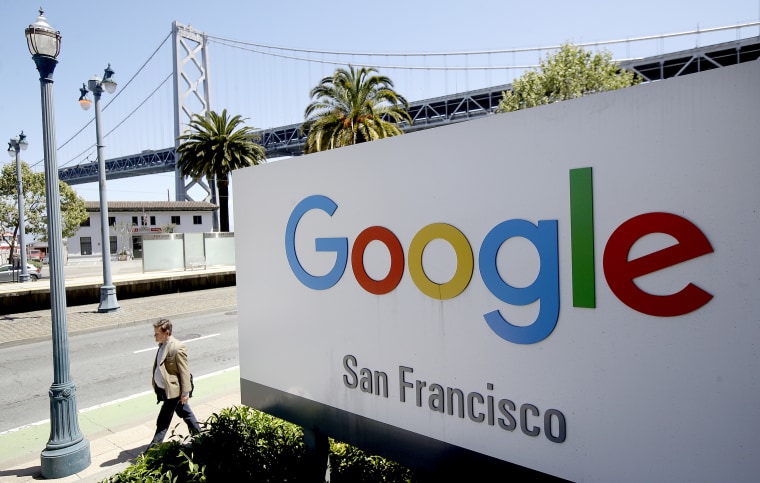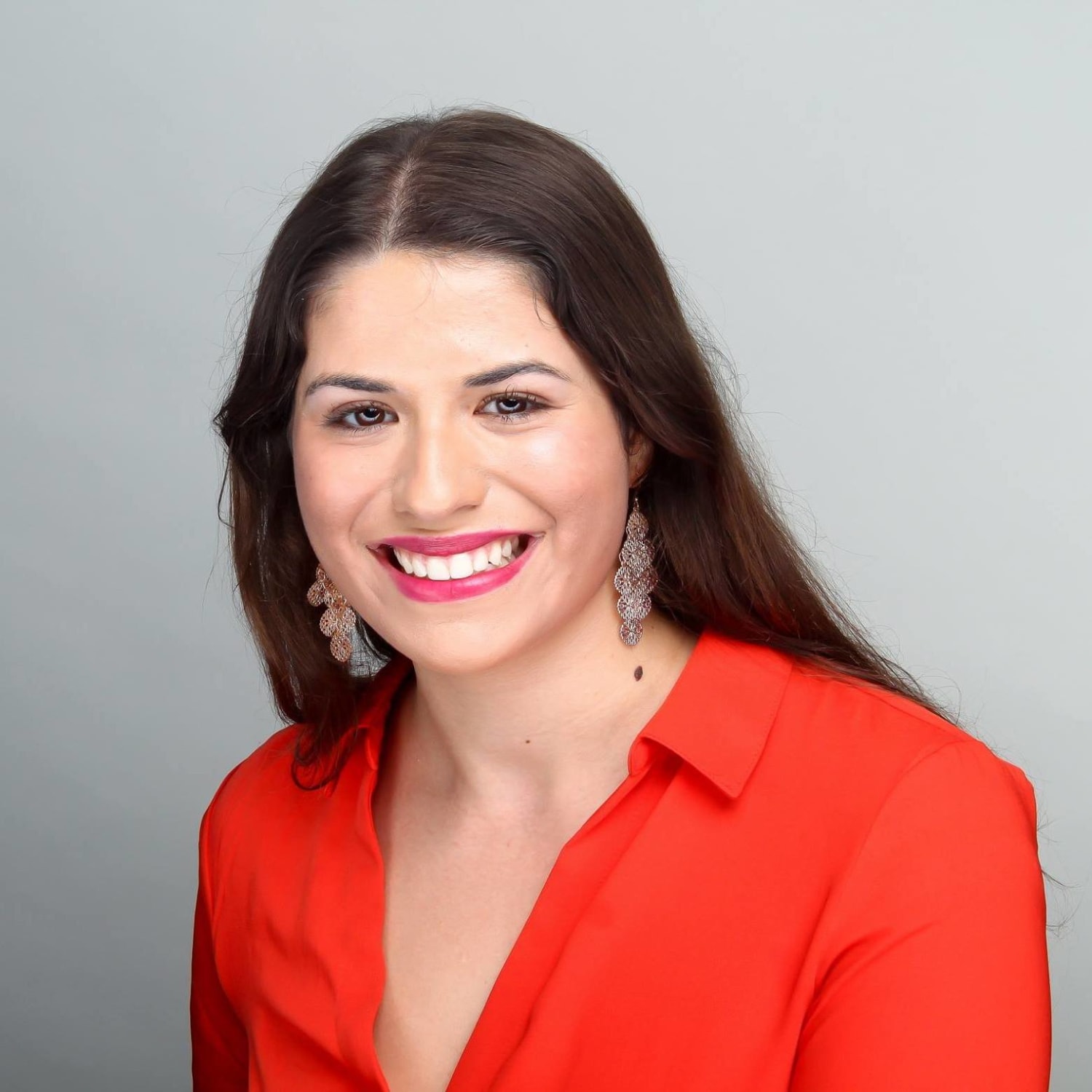Several activists are lobbying to ban Google from the San Francisco Pride march following what they view as the tech giant's inaction regarding harassment of LGBTQ users on its YouTube video platform.
“I don’t feel super connected to Pride, because it’s become much more focused on companies who make it all about slapping a rainbow logo on their products, not about queer people,” Tyler Bresaicher, one of the activists and a former Google employee, told NBC News.
When he saw a now-viral Twitter thread from Carlos Maza — a gay journalist who took to the social platform to chronicle the yearslong harassment he has been subjected to by right-wing YouTube personality Steven Crowder — Bresaicher said he was "angry and wondering what I should do." So he decided to go to a community meeting held by the San Francisco Pride Board of Directors to make his case for Google to be banned from the annual celebration.
In a tweet that has been shared more than 20,000 times since it was posted May 30, Maza, who produces the Vox digital series "Strikethrough," wrote, “I’ve been called an anchor baby, a lipsy queer, a Mexican, etc."
“These videos get millions of views on YouTube," he said of Crowder's YouTube posts. "Every time one gets posted, I wake up to a wall of homophobic/racist abuse on Instagram and Twitter.”
Maza also posted a video mashup of Crowder’s harassment, which shows the YouTuber mocking the way Maza eats and walks.
YouTube initially maintained that Crowder — who has a sizable platform with more than 3.8 million followers and sells T-shirts that read “Socialism is for f*gs” — did not violate its terms.
“While we found language that was clearly hurtful, the videos as posted don’t violate our policies,” YouTube wrote in response to Maza’s Twitter thread. “Opinions can be deeply offensive, but if they don’t violate our policies, they’ll remain on our site.”
Though Crowder’s videos remain on YouTube, backlash on social media has caused the company to partially reverse its initial decision. On Tuesday, the company stated that it “suspended this channel’s monetization,” meaning it will withhold advertisement revenue from Crowder's channel until he removes the link to his merchandise website from his video descriptions.
But some activists who attended the San Francisco Lesbian Gay Bisexual Transgender Pride Celebration Committee's recent board meeting felt YouTube’s response was not enough.
“Google wants to have it both ways. They want to have their rainbow search page and proclaim they’re pro-LGBTQ, but when push comes to shove, they don’t make decisions that support LGBTQ YouTubers,” Bresaicher said. “Google is not an ally in the way they want you to think they are.”
Bresaicher pointed out multiple incidents in which he contends Google displayed a lack of investment in its LGBTQ users. Last year, LGBTQ YouTubers such as Tyler Oakley, Rowan Ellis and NeonFiona spoke up about their content being hidden or demonetized.
Google did not respond to NBC News’ request for comment.
The San Francisco Pride Board of Directors has never barred a company from Pride, though it came close to doing so in 2015 after Facebook instituted a “real name” policy, which penalized transgender users for not using their birth names. The board ultimately voted to allow Facebook to participate.
“San Francisco Pride seeks to build space for diversity, inclusion, and respectful dialogue. We encourage the elevation and protection of marginalized voices,” Fred Lopez, the communications manager for San Francisco Pride, wrote in an emailed statement. “We are monitoring this story as it develops, listening to the concerns of the community, and have raised these concerns with our contacts at Google.”
Lopez added that Google is a “longtime partner” of San Francisco Pride as well as a sponsor and registered contingent of the parade.
If the board doesn’t exclude Google from this year’s festivities, Bresaicher said he hopes it seriously considers doing so next year.
“If the board bans Google or is even just considering doing so, it’s one way to make the company re-evaluate what they’re doing and how they’re treating LGBTQ people," he said.

